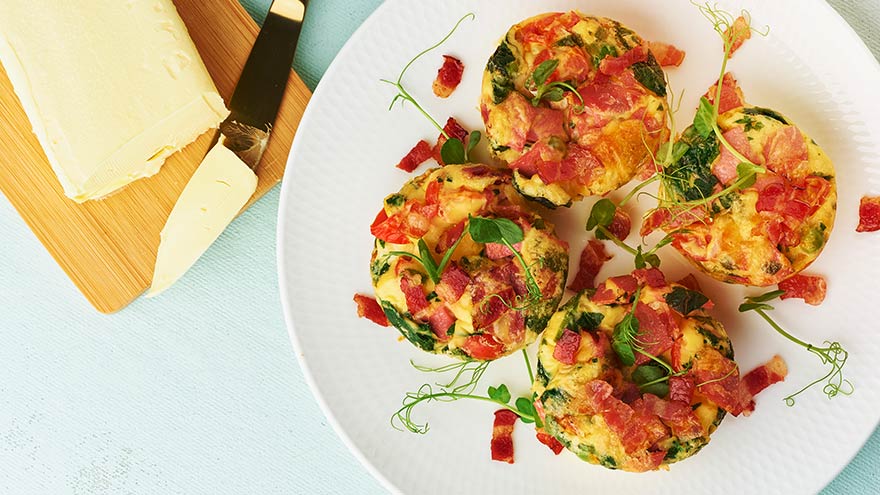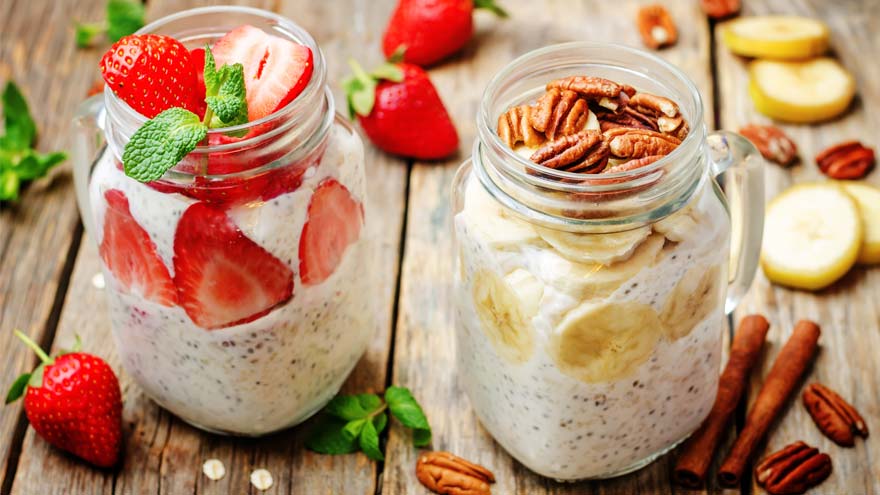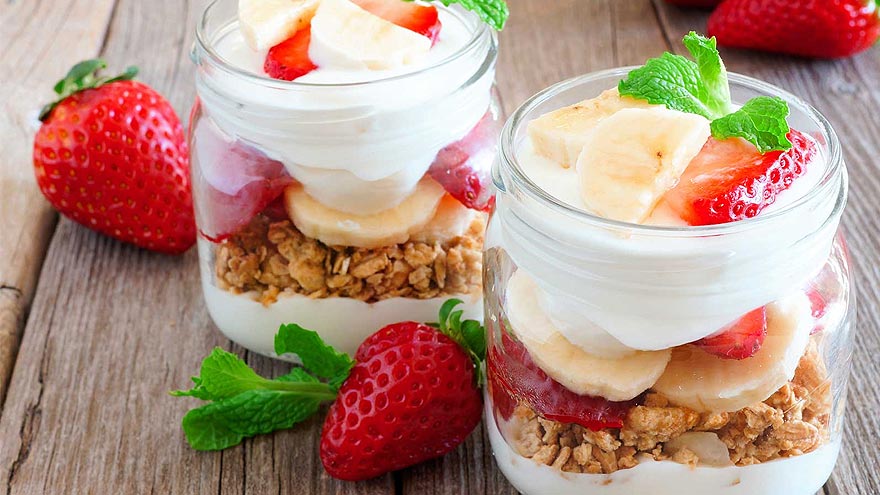Buscar
-
Healthy Potato Salad A Creamy Dreamy and Light Picnic Favorite
Potato salad is the superstar of summer picnics, a delightful sidekick at backyard BBQs, and a tasty everyday treat! Our friends at Renown's Health Improvement Programs whipped up a fabulous, health-conscious version that doesn't skimp on the creamy dreaminess we crave. This salad features purple potatoes for a dash of delightful color. It's also easy to make, with protein-rich Greek yogurt and egg whites. This simple but classic dish will indeed become your circle's new favorite—talk about a tasty transformation!
Read More About Healthy Potato Salad A Creamy Dreamy and Light Picnic Favorite
-
Optimizing Mammogram Screenings: A Genetic Approach to a Personalized Screening Schedule
Breast cancer screening has long been a cornerstone of women's healthcare. With 1 in 8 women diagnosed with breast cancer in their lifetime1, the United States Preventive Services Task Force (USPSTF) has developed screening recommendations to help detect early-stage cancer. Notably in 2023, the USPSTF revised the recommended age for biennial mammogram screenings for women with average risk to start at age 40 instead of 502, estimated to result in 19% more lives being saved3 by starting screening earlier. While initiating screening at an earlier age offers advantages to a wide demographic, concerns about the potential of over-screening prompted research into the feasibility of identifying women with lower breast cancer risk who could safely delay mammograms. While guidelines address high-risk individuals, a notable gap exists in providing recommendations tailored to those at lower risk. To gain insight into a patient's risk level, physicians are able to utilize genetic testing to understand an individual's genetic makeup, providing precise insights into their predisposition to various health conditions, including breast cancer. Armed with this genetic information, healthcare providers could craft tailored screening strategies that align with an individual’s specific risk profile. This genetic risk-based approach underscores the value of genetics in individualizing the onset of screening to help avoid over-screening and its associated costs. Surprisingly, genetic information is not currently being widely utilized to identify women at risk of breast cancer or other diseases in clinical practice, despite its potential to make a significant positive impact for patients. A recent retrospective analysis of 25,591 women from the Healthy Nevada Project4 sheds light on the potential benefits of this genetic risk-based approach. The study classified 2,338 (9.1%) of these women as having a low genetic risk for breast cancer. What's remarkable is that these women exhibited a significantly lower and later onset of breast cancer compared to their average or high-risk counterparts. This finding suggests that it might be safe for low-risk women to delay mammogram screening by 5 to 10 years without compromising their health.
-
Departamento destacado: Float Pool
Ring in the New Year and the rest of the holiday season by celebrating Renown’s Float Pool team! After coming out of the COVID-19 pandemic, it's no mystery that healthcare across the country has shifted and adapted to the growing needs and new demands of our patient populations. Renown Health is no different. As the largest not-for-profit health system in the region, we are no stranger to change, even when change presents challenges. Who do we call on when a unit needs more team members in the eleventh hour? Who can help when our patient volume spikes up with seconds to spare? This is where the Float Pool at Renown comes to the rescue. Skilled in a wide variety of healthcare specialties, from acute care nursing and critical care to care aiding and patient safety, this is the team that can seamlessly step in to provide crucial patient care to the units that need it most, whether a team is understaffed for the day or needs extra all-hands-on-deck for a specific patient or procedure. Float Pool team members are equipped to work in virtually any clinical area at Renown, making a genuine difference with every patient they encounter. A Pool of Relief Teams across Renown can breathe a sigh of relief knowing that Float Pool has their back in times of need. As the backbone of our health system, these dedicated team members possess a wealth of clinical knowledge and the ability to navigate diverse medical environments. Their flexibility allows them to fill staffing gaps and provide essential support to many different units. “We fill in the gaps of staffing to make everyone's day better,” said Patti Crepps, Critical Care Float Pool RN. “A float nurse has to be flexible and able to adapt to different situations and places – basically, ‘go with the flow.’ Patient care is basically the same all over; we make patient care possible by being familiar with all the various specialties and providing the specific care needed depending on the population we are taking care of on that shift.” “Float Pool staff members are like healthcare chameleons, transitioning between different departments,” added Shelby Riach, Acute Float Pool RN. “We incorporate flexibility, teamwork and a commitment to ensuring patients receive the best care, regardless of the setting or circumstances.” This team thrives in uncertainty; in fact, no workday is the same in Float Pool – and that’s exactly the way they like it. Working with many different teams across a multitude of specialties, these Care Aides, RNs, Critical Care Techs, Patient Safety Assistants (PSAs), Certified Nurses Assistants (CNAs) and more enjoy facing change, while they all share a goal of providing the best patient care possible. “No day looks the same; since we are the Float Pool, we are assigned a different assignment on Smart Square every day, whether it be as a care aide, a patient safety assistant, a unit clerk or patient transport,” said Melina Castenada, Care Aide. “If we are assigned as a care aide on the floor, we help assist with call lights and help with whatever nurses and CNAs may need, including feeding, transporting, walking, helping patients use the restroom, etc. When we are assigned as a PSA ‘sitter,’ we sit for the patient to help keep them safe. If we are assigned as unit clerk, we help answer phones and direct patients appropriately, file paperwork, answer call lights if needed and assist with office work.” “I love that every day is a different floor with different tasks and a different atmosphere,” added Julia Chappell, Critical Care Technician. “I find out which floor that I will be on right before my shift starts and head to the floor to find out my assignment for the day. Depending on the specialty, such as the medical-surgical floor versus an intensive care unit (ICU), my daily job tasks can vary.” When it comes to high-risk patients, who require special attention, PSAs within Float Pool step in to help. “The PSA role within Float Pool largely consists of adverse event prevention for our high-risk patients, and being a Float Pool employee allows us to work wherever we are needed,” said Dimitri Macouin, Patient Safety Assistant. “Whether it be in the emergency department, neurology or pediatrics, the PSA will be the eyes and ears for the nurses working with this patient population.” “Great strides have been made to ensure that PSAs remain vigilant and are recognized as an integral part of the patients' care team rather than 'just a sitter,’” added Karla Phillips, Patient Safety Assistant. Float Pool also oversees our Discharge Lounge, which offers patients and their families a dedicated space to reconnect and prepare for their discharge from the hospital. “The increase in utilization of the Discharge Lounge is something we are very proud of,” said Kara Abshier, Care Aide. “We assist in discharging patients from all over the hospital to help the floor and get new patients into rooms.” Every day brings a new challenge for Float Pool. As these team members wake up with uncertainty, they are ready to embrace the diverse demands of caring for patients of all ages. “The fact that Float Pool exists is amazing,” said Hannah Luccshesi, Acute Float Pool RN. “We wake up with no clue as to whether we will be working with babies, children or adults and then fill in the needs of the hospital.”
-
Perfect Peanut Butter and Pumpkin Puppy Treats
This holiday season, sprinkle some extra joy for your favorite furry pals by whipping up these easy, AKC-approved dog treats. With simple ingredients and quick baking times, they're the perfect last-minute surprise to show your pet some love. Turn it into a delightful gift by snagging some adorable, budget-friendly canisters (easily found at dollar or thrift stores) and fill them to the brim with these homemade goodies. It's a merry, tail-wagging gift that's sure to make this season the most pet-friendly one yet! 🎄🐾🍪
Read More About Perfect Peanut Butter and Pumpkin Puppy Treats
-
Cranberry-Jalapeño Cream Cheese Dip
Add a dash of holiday cheer to your gatherings with this vibrant Cranberry-Jalapeño Cream Cheese Dip. Its festive red and green hues perfectly capture the spirit of the season, while the delightful blend of sweet, spicy, tart, and creamy flavors is sure to delight and tantalize your guests' palates. Simple to prepare, this appetizer is an irresistible addition to any holiday feast!
-
Mysterious Mummy Hot Dogs
This easy, kid-friendly recipe just might be the perfect pre-trick-or-treating meal that will vanish before your eyes! Serve with veggie sticks and mustard and ketchup for dipping. Several healthy hot dog options, such as vegan, turkey and chicken, are available in most grocery or health food stores.
-
Crustless Quiche Muffins
Are you looking for a new recipe to add to your healthy brunch menu without all the hassle? This muffin is perfect for hosting or keeping in your refrigerator and reheating whenever you need a protein-packed snack. Now, aren't eggs high in cholesterol? According to the American Heart Association, egg whites provide plenty of protein without the yolk's cholesterol. That's why our dietitian masters a lower-cholesterol egg muffin by combining eggs with an egg white substitute.
-
Honey Fruit Dip
Take a breather during spring break and make this fun, sweet treat with your kids. We've provided nutritional cream cheese and sugar alternatives to keep your family's health top of mind.
-
Staying Heart-Healthy with Genetic Screening
February is American Heart Month. While cardiac care is crucial every time of year – especially as heart disease stays the number one killer in the United States – American Heart Month serves as a great reminder to stay on top of your heart health. We spoke with Malina Ruiz, a cardiology nurse practitioner at Renown Health, on three key ways to embrace heart-healthy living and how genetic screening can help inform you of certain genetic risks that can play a role on the cardiac life stage. 1. Invest in a heart-healthy diet. Eating a diet that is rich in fruits, vegetables, whole grains and healthy fats (including monounsaturated fats such as avocados and polyunsaturated fats such as sunflower oil) is a key defense in protecting your cardiac health, according to Malina. While you are filling your plate with these nutritious foods, remember to keep an eye on your saturated and trans-fat intake, and try limiting foods that are high in those fats. “No matter what age we are, maintaining a heart-healthy diet will always be important,” said Malina. Need help finding cardiac-friendly meals? The National Heart, Lung and Blood Institute makes it easy with heart-healthy recipes and tips from experts. 2. Do an exercise audit. “Keeping an active lifestyle during our younger years is one of the most important factors that affect heart health in future years,” said Malina. Maintaining a regular exercise regimen that allows you to raise your heart rate and break a sweat can help prevent future cardiac events. A good rule of thumb is to aim for 150 minutes a week of moderate-intensity exercise, which averages out to 30 minutes a day on 5 days out of the week. It’s never too late to start a regular exercise routine! Exercise doesn’t have to be something you dread – leverage American Heart Month to find activities that you enjoy. The American Heart Association can help you discover new ways to move your body. At the end of the day, as Malina emphasizes, “any movement is better than nothing!” 3. Don't skip those check-ups. Regular preventative visits with your primary care provider can help you identify possible risk factors for heart conditions before they start actively affecting your life. “Check-ups become even more important as we age, along with being aware of the signs and symptoms of heart disease, heart attack and stroke,” added Malina. There’s no time better than the present – call our expert scheduling team today at 775-982-5000 to request a preventative check-up with your primary care provider.
Read More About Staying Heart-Healthy with Genetic Screening
-
Easy Overnight Oatmeal
Organize your morning meal the night before with this easy, refrigerated, ready-to-go recipe. Fiber-rich oats are full of omega-3 fatty acids, folate, and potassium and can lower LDL (or bad) cholesterol levels and help keep arteries clear. Start your day the heart-healthy way!
-
Slow Cooker Chicken Potato Soup
A warm, comforting bowl of soup is always perfect for a winter meal. The creamy potatoes, tender chicken and vegetables in this recipe will make this a unique favorite. Even better – you can prep this gluten-free recipe in your slow cooker and freeze the leftovers.
-
Berrylicious Parfait
Treat yourself and your family to this tasty delight on those busy pre-holiday mornings. Super quick to make, this light berry parfait is naturally sweet, packed with protein and texture, and has less than 300 calories!


.png?rev=fcd27802b7604a96bf1056b050ef90c5)








